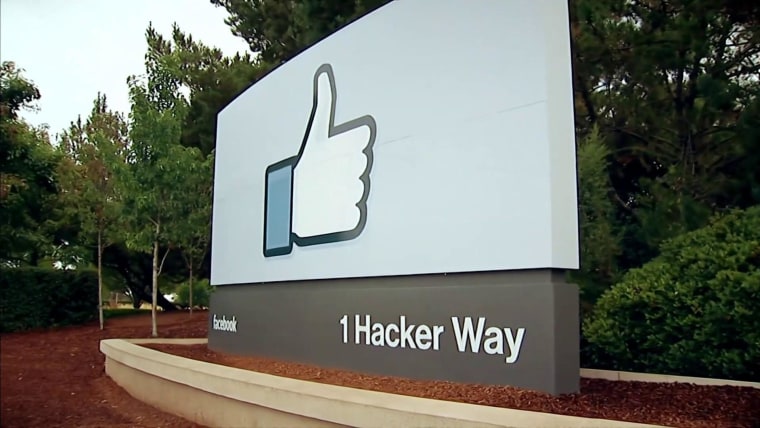In 2020, we chatted over Zoom. Exercised with Peloton. Dined with DoorDash. Shopped with Instacart. Meditated with Headspace.
In retrospect, maybe we weren’t using the internet enough.
That might have been an absurd idea back in 2019, when “screen time” and the addictiveness of social media got widespread attention. It was the year that saw a political backlash against the tech industry take root, coupled with growing public pushback from people within the tech industry who feared they’d built monsters they couldn’t control.
But after a pandemic year that pushed more of life online, the idea of spending even more time on the internet doesn’t sound so crazy anymore. And that might change how some people feel about technology or even make them a little more grateful.
Even if they’re tired of Zoom hangouts.
“There’s a lot of negativity around technology right now, but without Zoom, we don’t get through 2020,” said Om Malik, who founded the tech media company GigaOm and is now an investor.
Zoom and apps like it have been the “driftwood we needed to hold on to in this year’s choppy seas,” Malik wrote in a blog post last month. Millions of people tried out video chats with their doctors’ offices or used online classroom tools to get something resembling an education for kids who were forced to stay home or relied on videoconferencing to celebrate birthdays.
Call it the Zoomification of society, and it may have only just begun.
“Consumer habits that started during Covid are so long-lasting that they will be permanent habits. I believe that they’ll be sticky,” said Nicole Quinn, a partner at the venture capital firm Lightspeed Venture Partners.
Lingering questions
The usefulness of tech in 2020 doesn’t mean the tough questions about technology have been answered. In many ways, the pandemic brought some of them into sharper focus. Remote schooling meant people without multiple computers at home and easy or cheap access to broadband internet worked from parking lots. Misinformation about Covid-19 and its vaccines has been rampant on social media. The internet offered a way for scam artists to profit from the pandemic.
Government scrutiny persists. Antitrust lawsuits launched by nearly every statein recent months over the dominance of Facebook and Google are likely to last for years, and the incoming Biden administration is unlikely to go easy on the tech industry.
Congress is debating a rewrite of some of the laws that govern the internet, including privacy protections and the liability shield enjoyed by tech platforms. And states nationwide are becoming battlegrounds over how best to regulate gig economy companies such as Uber, Lyft and DoorDash.
Changing attitudes
But for the fortunate, the central role of technology during the pandemic may temper certain harsh attitudes they had toward Silicon Valley. Even previously screen-free families found themselves reconsidering tech’s place in their lives.
Malik said it may be as fundamental a shift as the rise of Google’s search engine two decades ago.
“When Google came along, we all had this search experience which was pretty astounding, and we started becoming used to the idea of search augmenting our ability to find and research information. It rewired a whole generation,” he said in an interview.
“The people who grew up natively on Google think differently about information and how they consume it,” he said. “When something that big becomes ingrained in society, it starts to change everything.”
Video chats with doctors and nurses were once rare occurrences, but they are now used by millions of patients, including older Americans who are on Medicare. Online learning startups are planning for a future in which millions more people use video calling for education, even after classrooms fully reopen. Some think that hologram-based communication may be next.
And that’s without mentioning office workers, who may continue telecommuting at least part of their weeks depending on their jobs and employers.
“Digital has become a very good substitute for some types of in-person experiences,” said David Thacker, a partner at the venture capital firm Greylock. “It allows you to do more. I can talk to more people. I can see more people. I can attend more meetings. I can exercise more.”
Some people may curse the amount of time they’re spending on screens during the pandemic and look forward to a chance to spend less time online and more time with one another recovering from “Zoom fatigue.” But the efficiency and convenience of services like telehealth may be too good to pass up.
“I think people will want to travel again. And I think people will want to meet in person, but I think people will be more selective about when they meet up in person,” Thacker said.
He said he expects the shift to online shopping to persist past the coronavirus crisis even for major purchases that involve significant deliberation, such as cars. Amazon, the biggest online retailer, has been adding an average of 1,400 workers a day in anticipation that rapid growth will continue.
Old is new
One characteristic of the 2020 tech boom is that many of the newly popular tech products weren’t actually new. Zoom was founded in 2011. Services like the takeout app DoorDash, the meditation assistant Headspace, the exercise bike maker Peloton and the grocery delivery service Instacart were all around, but they weren’t part of many people’s routines.
It took a crisis to get people to download them off the digital shelf, speeding by years what had been a slow evolution.
“People don’t change the way they do things very often,” Thacker said. “There has to be something that prompts them, and the pandemic just forced that. I don’t know that we’ve ever had an event in modern history like that.”
The most lasting impact of the pandemic’s tech-enabled habits could be in the everyday dynamics of people’s homes, where work now often mixes with family as if they were shopkeepers from an earlier century. Boundaries built up in recent years are blurring.
“It’s only recently in human history that we imagined the home as a castle of domesticity and retreat from the world,” said Alex Soojung-Kim Pang, an author and consultant who’s written three books about people’s relationship with technology.
“The idea of the suburban house where you didn’t grow any food or you didn’t have a workshop or an office, that would have been completely alien to someone 100 years ago,” he said. “We are returning to a model of work-home life that would have been unfamiliar to our parents but completely familiar to our great grandparents.”
Source: | This article originally belongs to Nbcnews.com










